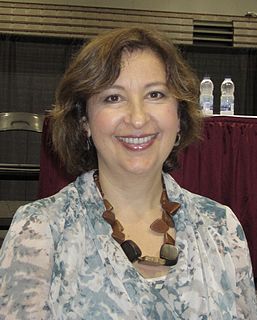A Quote by E. M. Forster
Chess is a forcing house where the fruits of character can ripen more fully than in life
Related Quotes
For, owners of their deeds (karma) are the beings, heirs of their deeds; their deeds are the womb from which they sprang; with their deeds they are bound up; their deeds are their refuge. Whatever deeds they do-good or evil-of such they will be the heirs. And wherever the beings spring into existence, there their deeds will ripen; and wherever their deeds ripen, there they will earn the fruits of those deeds, be it in this life, or be it in the next life, or be it in any other future life.
I started playing chess when I was about 4 or 5 years old. It is very good for children to learn to play chess, because it helps them to develop their mental abilities. It also helps to consolidate a person's character, because as it happens both in life and in a chess game we have to make decisions constantly. In chess there is no luck and no excuses: everything is in your hands.
Chess is more than a game or a mental training. It is a distinct attainment. I have always regarded the playing of chess and the accomplishment of a good game as an art, and something to be admired no less than an artist's canvas or the product of a sculptor's chisel. Chess is a mental diversion rather than a game. It is both artistic and scientific.
The life of a chess master is much more difficult than that of an artist - much more depressing. An artist knows that someday there'll be recognition and monetary reward, but for the chess master there is little public recognition and absolutely no hope of supporting himself by his endeavors. If Bobby Fischer came to me for advice, I certainly would not discourage him - as if anyone could - but I would try to make it positively clear that he will never have any money from chess, live a monk-like existence and know more rejection than any artist ever has, struggling to be known and accepted.
I was a professional chess player in Romania, but only a small-time master. When I came to France, I continued playing chess for many years: I played tournaments in numerous countries with mixed results. I wrote and published a book - La Défense Alekhine and translated two others from Russian. I taught chess in schools; I earned more money through chess than through literature.





































